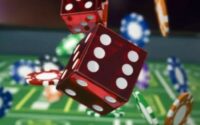The Best and Worst Ways to Place a Casino Bet
Casino gambling is generally regarded as a pleasurable pastime. Some people find it extremely entertaining to play their favorite penny slot machine that has been upgraded with all of the latest bells and whistles. For some, it’s simply a matter of spinning that stupid wheel and betting on where it will stop. Others, on the other hand, may choose to increase their chances of winning the jackpot by wagering on all of the carnival poker games’ side games
Me? I am entertained by the act of stealing money from the house. In most cases, the amount and frequency with which I take it to determine the level of entertainment that I experience. As a result, I almost exclusively engage in activities that have the highest likelihood of success for me. If you’re anything like me, you might be interested in this post on my blog. Continue reading even if you don’t like gambling as much as I do because learning about different casino games is fun. Eleven!
Games With Positive Expectancy
Because these games are distinct from the others available at the casino, I thought it would be best to group them. All of these games have the potential to be “positive expectancy games,” which means that you can win against them if you have enough expertise.
Poker
This should come as no surprise given that the player is competing against other players rather than an established house edge. The term “rake” refers to the small percentage taken from each pot for the house to profit. Because you are a skilled poker player, you should have a positive expectation of winning when you first sit down at a poker table. This is not the same as being a skilled three-card poker player, because the house edge built into the game makes it impossible to win consistently throughout the game’s duration.
Book of Race and Sports
Another one that should be obvious. If you are well-versed in sports or horse racing, you have a better chance of beating the house. However, unlike poker, the sports book presents a challenge in the form of a “house edge” that must be overcome. Every wager includes a commission known as the vigorish (or “vig” for short). Although each wager is different, the following example can help explain how the vig is calculated. Assume you bet Kansas -5.5 (-110) against Duke. This means that Kansas would have to win by at least six points for you to be successful. The (-110) indicates that you must wager $110 to win $100. If you lose, there is no vig. The vig is only paid when someone wins.
If you ask the vast majority of sports bettors, they will tell you that to have a positive expectation over the house, you must win at least 53 percent of your bets. This is to cover the cost of the previously assessed vig. Let’s look at another example from the book Professional Gambler:
Consider the following scenario: two gamblers, each attempting to win $100, place a total of $110 on opposing outcomes of the same proposition with the same bookmaker: The two bets generate a total of $220 for the bookmaker to collect. One bettor wins, while the other loses, and the successful bettor ends up with a total of $210, which includes the $110 he risked as well as the $100 he won. As a result, the bookmaker will walk away from the transaction with a ten-dollar profit. The bettor put $220 on the line, and the bookmaker pocketed $10. As a result, beating the built-in vig requires you to be an exceptionally skilled handicapper; however, it is not impossible to do so if you are aware of what you are doing.
Counting the Cards in the Game of Blackjack
It should not be necessary to go into great detail about this, but if you can count cards, you have the potential to turn blackjack into a game with a positive expectation. However, the margin is extremely thin and cannot be realized for a significant period, which is comparable to how the casino eventually makes money. Card counting is a time-consuming process, but it is one advantageous play you can employ if you want to tilt the odds in your favor. This strategy should be considered when playing blackjack.
Games With Negative Expectancy (but With a Low House Edge!)
These games are known as “negative expectancy” games because the house has an inherent advantage that causes players to lose money if they bet on them over time. The house edge for each of these bets, on the other hand, is quite low in comparison to the house edges for the other games in the casino.
Poker on Video
Video poker has the potential to be a game with a positive expectancy when full pay tables are found and the game is played with perfect strategy. This is a topic for discussion. There are still variations of these games available, such as Full Pay Deuces Wild, which, when played correctly, should win 100.76 percent of the time. The problem is that full-pay machines are extremely difficult to find in the majority of Las Vegas properties (your best bet is to visit off-strip and local casinos).
As a result, I’ve assigned a negative expectation to the situation; however, the game itself is still a good bet if you can find Not So Ugly Deuces (99.73 percent) or full pay Jacks or Better (99.54 percent), both of which are available with some research. Be wary of pay tables that are flawed, as even minor adjustments to the payouts can have a significant impact on the edge the house has. Visit the website of Bob Dancer as well as the Vice President page on the Wizard of Odds for additional details.
Blackjack
Blackjack’s house edge, like that of many other casino games, can change depending not only on how the game is played but also on how much money is won when a player gets a blackjack. Blackjack, on the other hand, has a very low house edge, approximately 0.28 percent when the rules are played as liberally as possible. This house edge is subject to change as a result of rule adjustments that favor the house.
You can find out how the odds change with different rule changes by using the blackjack odds calculator that is available on the Wizard of Odds website. The good news is that even when playing by more cautious rules, the advantage the house has over the player typically does not exceed 2 percent. This change is still quite significant in comparison to the 0.28 percent advantage that the house enjoys as described earlier.
It is also important to note that the house edge is calculated under the assumption that the player uses the optimal strategy. This indicates that you cannot stay on 16 against that 10, regardless of how strong your intuition tells you to do so (even if you hit, you will still lose 75 percent of the time, but if you don’t hit, you will lose 77 percent of the time). Giving up two winning hands is a huge margin in a game in which the dealer shouldn’t beat you more than 51 times out of 100. Check out my Blackjack 101 Page for more information on the game of blackjack.
Pass or Come Bet on Craps
Both the Pass Line bet and the Come bet have the same house edge of 1.41 percent, which is a number that is considered to be relatively low. This number, however, will decrease depending on the free odds that you can place behind or along with your bet. The house edge can be reduced to 0.08 percent when playing with single odds, 0.06 percent when playing with double odds, 0.037 when playing with 3-4-5x odds, 0.018 when playing with 10x odds, and 0.0021 percent when playing with 100x odds.
It should also be mentioned that the “Don’t Pass” and “Don’t Come” bets offer an even lower house edge than the Pass/Come bets, which is 1.35 percent. However, this means that you are betting against the dice, which is not as much fun as cheering for the dice. But if you despise humankind, by all means, carry it out. And fun. Check out my “Craps 101” page for a basic overview of the game, and head on over to the Wizard of Odds’ “Craps Page” for a more in-depth look at the “house edge” in this particular version of the game.
Pai Gow Poker
It is essential that you have some familiarity with the game of Pai Gow Poker to comprehend this wager; therefore, if you are unfamiliar with the game, you should check out the “Pai Gow 101” page on this website. When playing Pai Gow Poker, the dealer will typically deal with the cards and also take on the role of “Banker,” covering all of the bets that are placed on the table. When the dealer also acts as the banker, the advantage for the casino is approximately 2.68 percent.
However, the game also enables players to bank their bets on their behalf. This indicates that you will need to have a bankroll that is sufficient enough to cover all of the wagers that are placed on the table by your fellow players. You will then play the role of the “banker,” which puts you at an advantage over the other players because hands that are tied, also known as “copies,” go to the banker.
Why not play banker every hand, especially when you’re competing against the dealer head-to-head? The casino does not permit this at all. The most that a player will ever be able to bank on is every other hand, which results in an edge for the house of approximately 1.46 percent. The advantage for the casino will be slightly increased if players are only permitted to the bank every other hand. My advice, however, is to put your money in the bank if you have the means. Additional information on Pai Gow from the Wizard of Odds.
Baccarat
Baccarat is a game in which placing bets is very simple. There are only three options available to you: (1) Banker, (2) a Player, or (3) a Tie. That sums it up nicely. Be aware that you will be required to pay a commission of five percent on any wins from betting on the banker, even though this bet has one of the lowest house edges in the casino (1.06 percent) (1.06 percent). Betting on the “Player” in baccarat is also not a terrible choice to make. The edge for the house is 1.24 percent, and there will be no commission paid out. Note: Stay away from the tie bet (more on that later) (more on that later).
Craps
It makes no difference to the house edge whether you bet on the 6 or the 8 or both of them, as it is always the same (same number of times the dice will roll 6 or 8). (same number of times the dice will roll 6 or 8). On these bets, the advantage enjoyed by the house is 1.52 percent. These wagers are distinct from the Pass/Come bets described previously and offer a payout that is lower than the true odds. In light of the aforementioned, these two wagers constitute the next best options available at the table and are among the best in the entire casino.



